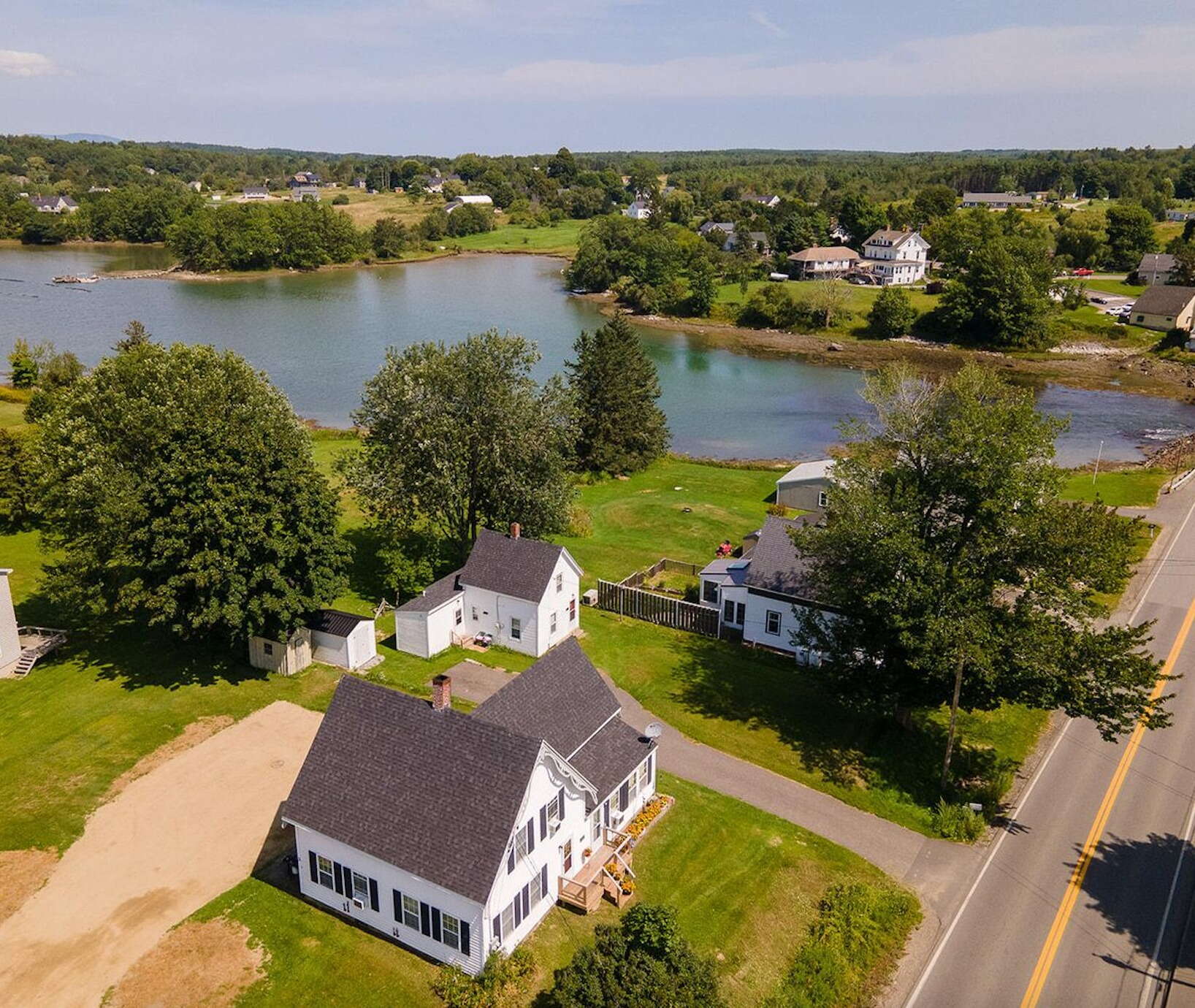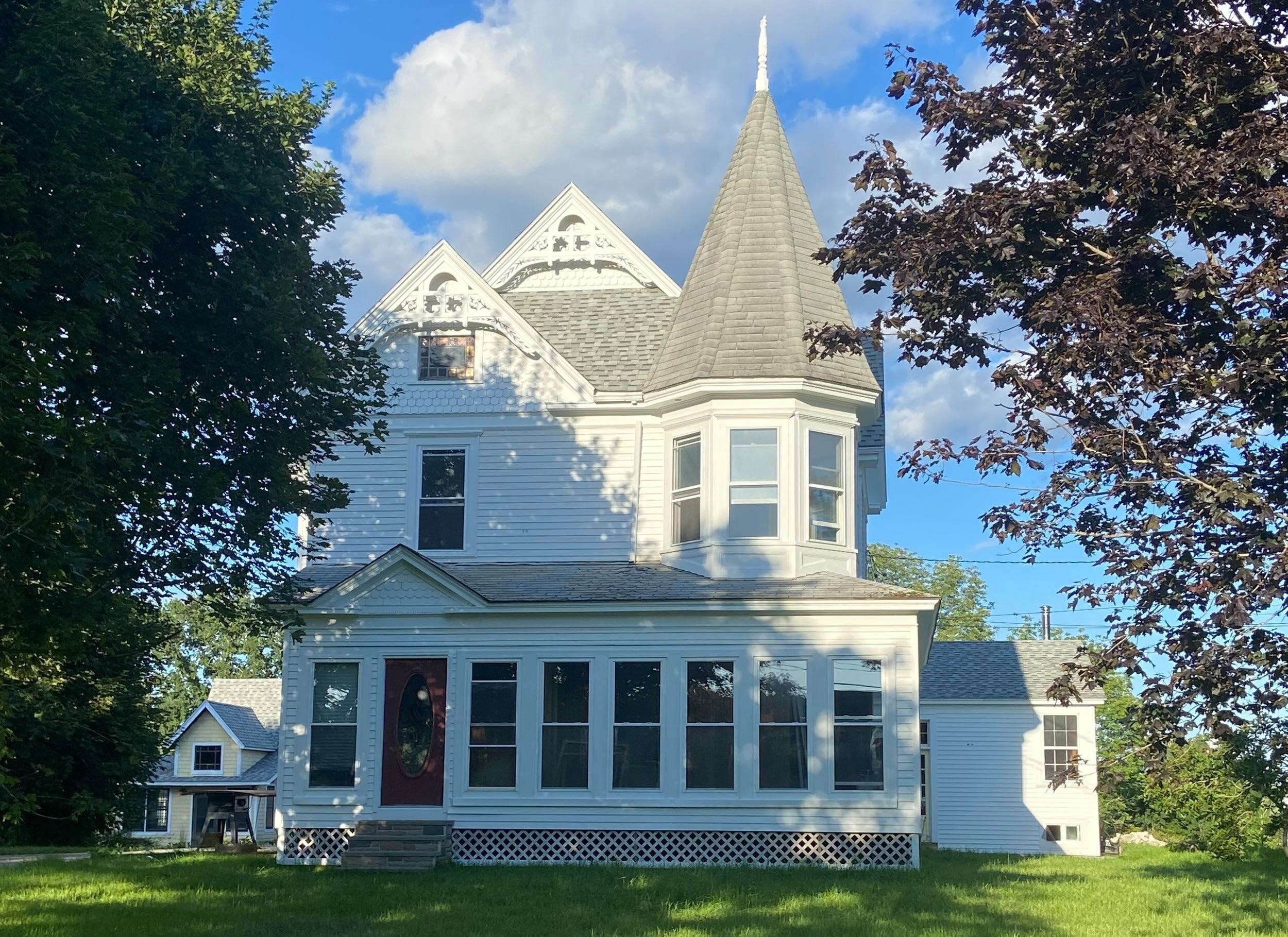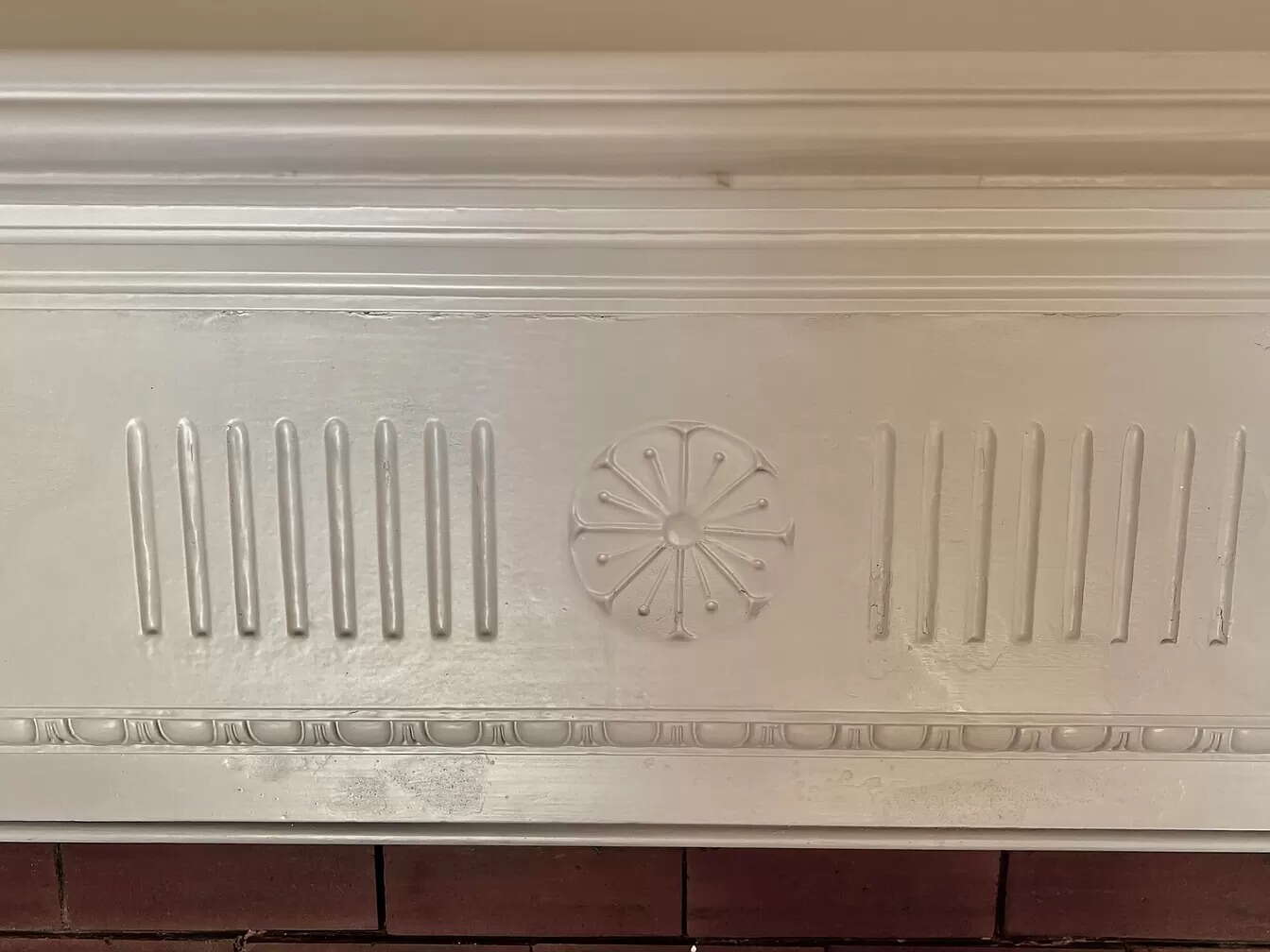
Maine developer looks for bargain properties to upgrade for ‘attainable’ homeownership
 Courtesy / Maine Working Homes
Interior work in the Thomaston project included new flooring and restored vintage elements such as the double doors and fireplace.
Courtesy / Maine Working Homes
Interior work in the Thomaston project included new flooring and restored vintage elements such as the double doors and fireplace.
A small development company has a mission to buy bargain properties and upgrade them as condo conversions for “attainable” homeownership.
Maine Working Homes’ latest project is seven-unit workforce housing development at 31-33 Booker St. in Thomaston.
The company purchased the distressed property at auction nine months ago. It included a three-story Victorian house and a large outbuilding. Maine Working Homes completed the first phase of the project, involving the conversion of the Victorian into two condominiums.
Work is underway on the second phase, which will create five additional condo units three of which will be stand-alone modular structures.
“This is the second condominium conversion project we’ve completed in midcoast,” said Merritt Carey, the company’s co-founder. “Over the summer, we undertook the detailed subdivision approval process with the town of Thomaston while we renovated the Victorian. The property needed significant infrastructure and cosmetic upgrades.”

She added, “The units in the Victorian have exceeded our expectations, and we have successfully maintained the exceptional period details of the structure.”
Formed in September 2021 by Carey and Andrew Curtis, Maine Working Homes is a limited liability corporation with a mission to create home ownership opportunities for people who have become increasingly priced out of the state’s residential real estate market and who are no longer able to buy homes in the communities in which they work.
The company has several ways to accomplish its goals:
- Convert existing multi-family properties to condominiums that can be independently owned;
- Perform new construction and workforce housing development;
- Buy and renovate distressed single family homes.
The company has completed two projects. The one in Thomaston is its third. All have been in Knox County, where Carey has prior connections.
To date, over $1 million of capital has been invested across the three projects. More will be deployed as the Thomaston project progresses.

“We 100% equity-funded two of the projects and used a small credit line in the third, in addition to our equity capital,” Curtis told Mainebiz.
Small-scale projects
Carey, who lives in Yarmouth, is a lawyer-turned-consultant with diverse community-relations experience, most recently as director of community relations for Luke's Lobster. After leaving the formal practice of law over a decade ago, she has worked on working waterfront, fisheries and rural economic development issues and helped found the Tenants Harbor Fisherman’s Co-op and the Maine Aquaculture Co-op.
Curtis lives in Connecticut but has family ties in Maine. He has spent 20 years working in finance in New York City, first at investment banks Merrill Lynch & Co. and Lazard Frères and later at several investment managers. Most recently, he served as an advisor to Annaly Capital Management, a real estate investment trust focused on housing finance and the residential mortgage market.
The two were college classmates. They joined forces in the fall of 2021 to launch Maine Working Homes.
“For the past two years, I have been trying to address Maine's housing problem in the midcoast with small-scale projects that create home ownership opportunities for community members,” Carey told Mainebiz.
South Thomaston
The company’s first project was the conversion of a multifamily rental property, at 3 Westbrook St. in South Thomaston, into a pair of two-bedroom, two-bath, 900-square-foot condo units.
Maine Working Homes bought the property in November 2021, completed renovations in January 2022 and finalized the sales of the two units that April and May. The sale price for both units was under $200,000. Maine Working Homes turned away several out-of-state cash buyers in favor of fulfilling its mission to provide home ownership opportunities to year-round Mainers.

The units in South Thomaston were sold to a local business owner and a nurse at Pen Bay Medical Center. The nurse, who is married to a Rockland firefighter, had struggled for three years to purchase a home, putting in several offers, all of which were trumped by cash offers, according to a news release.
Rockland
Another project involved 34-36 Willow St., a duplex in downtown Rockland, a block from Rockland Harbor and the Rockland Ferry Terminal.
Maine Working Homes bought the property and completed extensive renovations, then sold it to a Vinalhaven resident who intends to rent the property to year-round residents.
“As with our South Thomaston project, we undertook substantial infrastructure renovations while limiting kitchen and bathroom upgrades to keep costs as low as possible and maintain the units’ affordability,” Carey said.
All of the units in the South Thomaston and Rockland projects have sold, she said.
Thomaston
The purchase of 31-33 Booker St. in Thomaston closed last Valentine's Day 2023, “and it's literally been a labor of love since then,” said Carey.
The plan is to create seven units in all. The two 1,400-square-foot units in the Victorian house are complete.

The first floor unit two bedrooms, two-bathrooms, a two-car garage and a private yard. The second unit is 2-bedroom, 1-bath with a large private yard. The first floor is offered at $279,000 and the second floor will be offered at $249,000, making both of them priced at less than $200 per square foot, which Carey said is an excellent value in today’s real estate market. Condo fees are estimated at $195 per month.
In the outbuilding, the plan is two install two more side-by-side units; one of which will have a one-car garage and a workshop in the restructured building.
Then the plan is to bring in three modular stand-alone homes consisting of one 3-bedroom saltbox style home and two single-story 2-bedroom houses. Prices will range from just under $200,000 to above $300,000.
The first unit in the Victorian went on the market this month. It’s expected the second unit will be listed next month, following by another two units in early 2024 and the three modular units next spring.

“It’s priced at $196 per square foot, which is a price point you do not see for a finished turnkey home,” said Carey. “Our approach is to upgrade all the infrastructure and make the homes feel like homes, but we keep costs down by having simple kitchens and baths, and in some instances by leaving a few cosmetic upgrades to the new owner so they can build equity.”
Project financing comes from the founders’ own capital and a private investor in the community who has an interest in housing in Knox County but wants to remain anonymous, said Carey. The Thomaston project additionally utilized a small line of credit.
The town has been great to work with, Carey added.
Said Kara George, Thomaston’s town manager, “We are delighted to have Maine Working Homes in Thomaston. This development has been a very collaborative one between the town and Maine Working Homes, and we look forward to more housing options for our community members.”
‘Attainable’ ownership
Carey said the goal is to provide "attainable" housing.
As a for-profit business, it aims to keep project budgets as low as possible in order to provide “reasonably priced housing” for buyers, while at the same time making a return on their own capital and work.
“We've worked hard to be as vertically integrated and as smart as we can be,” Carey said. For example, Carey is the general contractor, so it’s not necessary to hire one.
Carey cited an average median house price in Knox County of $430,000.
The $279,000 cost of the first unit for sale is 39% below that average.
“In general, there are not many developers in this range, because it's much easier, I think, to build high-end, and there are plenty of buyers in that higher bracket at the moment,” she continued. “It is hard to be in the middle, with no subsidies, and be profitable. But that's where we're trying to be, because it's important to communities, and it's important, in the long run, that developers are able to make money and provide housing that is, if not ‘affordable,’ at least within reach.”
She noted the situation is further complicated, however, by today’s high interest rates, which contribute to the challenge of what a buyer can afford.
Condo option
Carey said she sees the use of condominiums as a mechanism for creation of affordable home ownership opportunities because they provide more flexibility with respect to zoning requirements.
“Condominiums often get a bad rap in Maine for a variety of reasons,” she said, “but done right, they are one of the best ways to offer ownership opportunities and keep costs down. We’re demonstrating it’s possible to create home ownership opportunities through frugal and careful project management.”
The company focuses on home ownership “because we believe that when people own in the communities they live in, they have more investment in their communities and inherently give back more to their communities,” Carey said. “Let alone the fact that you don't want your EMTs living three towns over if you have an emergency in the night. I think this is particularly true in the coastal communities.”
Large houses that are no longer suitable for a single family are ripe for conversion to condo units, she said.
“The gist is that there are creative ways to address the housing shortage,” she said.
How does Maine Working Homes find suitable properties?
“Our specialty seems to be the projects that most people don't want to take on,” said Carey. “It's too much for a new homeowner, but generally not big enough or profitable enough for someone looking to flip.”
She continued, “We like projects that require infrastructure upgrades because we're good at that and it's really important. We have a handful of Realtors we reach out to when we're ready for a next project.”
The company has also worked with the town of Thomaston to try and find collaborative ways to create housing.
“Other tactics include reaching out directly to owners of buildings or lots we think would be good sites or projects,” she said. “We generally beat the bushes in both traditional and nontraditional ways.”










0 Comments